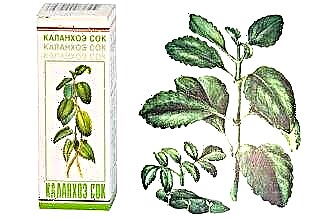 Drops from nasal congestion during pregnancy are necessary to restore nasal breathing and provide the embryo with oxygen. Physiological rhinitis is a condition in which the mucous membrane of the nasal passages becomes edematous due to a change in the quantitative composition of hormones. Hormonal changes are necessary to maintain pregnancy and prevent spontaneous abortion.
Drops from nasal congestion during pregnancy are necessary to restore nasal breathing and provide the embryo with oxygen. Physiological rhinitis is a condition in which the mucous membrane of the nasal passages becomes edematous due to a change in the quantitative composition of hormones. Hormonal changes are necessary to maintain pregnancy and prevent spontaneous abortion.
Usually, a physiological rhinitis occurs in the second trimester and disappears only in the postpartum period. As for the pathological causes, among them it is worth highlighting:
- infectious pathogens;
- allergens;
- dryness, air pollution;
- chronic inflammatory diseases of the nasopharynx;
- polyps.
It is important to use only medicines approved for pregnancy, otherwise the risk of pathology of the placenta and disorders in the development of the embryo increases.
Pregnant women are allowed solutions for intranasal administration based on sea water and herbal ingredients.
Saline solutions
There are a large number of seawater-based solutions that can be instilled into the nasal passages without fear for the life of the fetus. The harmless drops include:
- Aqua Maris;
- Marimer;
- Dolphin;
- Aqualor;
- But-salt;
- Salin;
- Humer;
- Morenazal;
- Otrivin baby.
Alternatively, you can opt for cheaper drugs, such as saline. The action of saline agents is:
- moisturizing the nasal mucosa;
- cleaning fabrics from dust, allergens, microbes;
- acceleration of regeneration;
- activation of metabolic processes;
- reducing swelling;
- protection of the mucous membrane from the negative effects of environmental factors.
Saline solutions can be used prophylactically to prevent the onset of a cold. They play a leading role in the treatment of rhinitis during pregnancy.
Herbal, homeopathic preparations
This group of medicines is large enough, so you can choose the most suitable drops for each trimester. Safe medicines include:
- Pinosol;
- Edas-131;
- Euphorbium Compositum Nazentropfen C;
- Delufen.
Pinosol
Herbal drops can be used throughout pregnancy. Pinosol consists of peppermint, eucalyptus, pine, vitamin E and thymol oils.
It should be remembered that Pinosol does not have a vasoconstrictor effect, therefore, it does not provide a significant improvement in breathing.
The drug has a menthol aroma and a greenish tint. Due to its plant composition, it does not negatively affect the fetus.
Local action consists in:
- elimination of infectious pathogens;
- stimulation of regeneration;
- protection of the mucous membrane from irritating factors;
- improving tissue nutrition;
- reducing swelling;
- slight relief of nasal breathing.
Contraindications include intolerance to the components and an allergic type of rhinitis. The medicine is administered three drops three times a day. Adverse reactions are rare, but you need to remember about them.
 After nasal instillation, it is possible:
After nasal instillation, it is possible:
- redness, itching of the mucous membrane;
- skin rashes;
- bronchospasm;
- dermatitis;
- increased tissue swelling, as a manifestation of an allergic reaction.
Remember that drugs are preferably applied to the nasal mucosa cleaned with saline.
Edas-131
Homeopathic remedies include Edas-131. It is prescribed for infectious and allergic rhinitis for:
- reduction of tissue edema;
- strengthening local immunity;
- elimination of infectious pathogens;
- restoration of drainage function;
- reducing the volume of secretions.
Edas-131 must be dripped at the beginning of a runny nose, when the discharge is watery, which allows you to accelerate the onset of the thick snot phase and speed up recovery.
The medicine is recommended to be instilled three drops three times a day. Among the contraindications, it should be noted the intolerance of the components of the drug.
Adverse reactions are observed in exceptional cases. They can be represented by itching sensations in the nasal cavities, as well as hives.
Euphorbium Compositum Nazentropfen C
 Homeopathic nasal drops for pregnant women have the following medicinal properties:
Homeopathic nasal drops for pregnant women have the following medicinal properties:
- anti-inflammatory;
- decongestant;
- immunostimulating;
- antiallergic;
- antiviral.
The drug is used in the treatment of infectious, vasomotor, atrophic and allergic rhinitis. Contraindications include an allergic reaction to the components of the drug.
If rhinorrhea intensifies at the initial stage of therapy, this is not a reason to discontinue the drug. Euphorbium Compositum can be used in one dose 4 times a day. The duration of the course can be up to 1.5 months.
Adverse reactions include:
- irritation of the mucous membrane in the form of hypersecretion, burning sensations;
- bronchospasm.
Delufen
The complex homeopathic preparation has anti-inflammatory, antiseptic, antiallergic, regenerating and protective effect on the mucous membrane. Due to this, tissue edema and rhinorrhea are quickly reduced, and nasal breathing improves.
The main advantage of the drug is the lack of addiction, which makes it possible to use it for a long course with pollinosis and atrophic form of rhinitis.
Delufen is prescribed in two doses three times a day. Caution is required in the treatment of pregnant women with hyperthyroidism. The duration of the course can be 1-8 weeks (at the discretion of the doctor).
Protargol
A drug based on silver proteinate has a pronounced antimicrobial, immunomodulatory and protective effect on the mucous membrane. In addition, after the instillation of the nasal passages, breathing is facilitated by reducing the swelling and volume of mucous secretions.
Contraindications include:
- glaucoma:
- vascular atherosclerosis;
- hypertension;
- tachycardia;
- atrophic type of rhinitis;
- thyrotoxicosis.
It is recommended to instill three drops three times daily. In rare cases, sneezing, itching sensations and increased rhinorrhea may occur.
Vasoconstrictor drugs
It is impossible not to mention drugs with a vasoconstrictor effect. They are widely used in otolaryngology, but they are not very welcomed in obstetrics.
Vasoconstrictor nasal drops during pregnancy must be used with extreme caution. The fact is that the action of medications is aimed at narrowing the blood vessels, which is accompanied by a decrease in the severity of tissue edema and rhinorrhea.
If the recommended doses and the duration of the therapeutic course are exceeded, the development of a systemic vasoconstrictor effect is possible. As a result, the vessels of the placenta suffer, due to which the fetus receives an insufficient amount of oxygen and nutrients.
Of particular danger for a pregnant woman are drops based on oxymetazoline, such as Nazol, Afrin, Nazivin, Fazin.
What drops with vasoconstrictor properties can be used during pregnancy? In the case of severe nasal congestion, as well as the threat of complications, the doctor may authorize the use of nasal drugs based on ximetazoline.It can be Otrivin, Tizin, Snoop, Xymelin, however, they are prescribed in a minimum dose and no longer than three days. Do not forget that it is possible to facilitate nasal breathing not only with medications. So, it is recommended to increase the importance of air in the room to 65%, reduce the temperature to 19 degrees, regularly carry out wet cleaning and ventilate the room.
Outdoor walks are especially important, which will not only strengthen the immunity of pregnant women, but also stabilize her psycho-emotional state.



